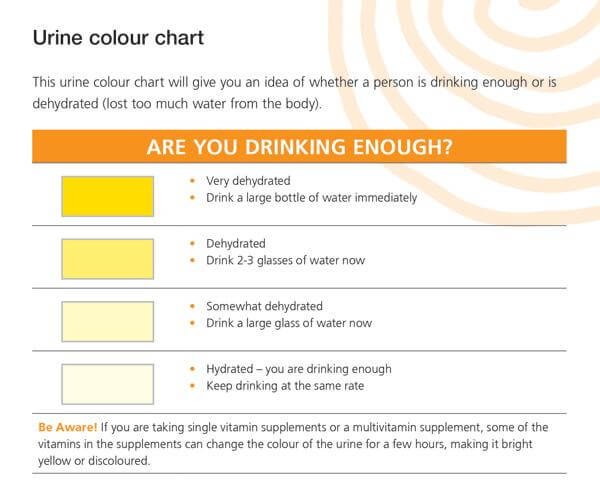Why Staying Hydrated Is Good for Both Conception and Pregnancy





Hydration is a primary need for humans. Every system in your body depends on, and requires water to function. Therefore, it's important to note that drinking plenty of water, and staying hydrated is essential when trying to conceive.
The human body is composed largely of water, and water plays many crucial roles in maintaining health. Some functions include, body temperature regulation, transport of nutrients, hormonal and metabolic reactions, cellular functions, aids in digestion, and carries nutrients throughout your body. Water also naturally flushes out toxins in the body, and keeps all of your reproductive cells, and organs functioning properly.
What are the benefits of drinking water preconception and pregnancy?
When trying to conceive it is important for both women and men to stay hydrated to ensure that both the ovaries and testes are functioning at top capacity.
For women, dehydration can affect cervical mucus, which plays an important role in transporting and protecting the sperm to the fallopian tubes for egg fertilization.
For men, semen production and semen volume can be negatively impacted by dehydration too.
Dehydration is never an ideal condition for your body, and it can be especially devastating preconception and during pregnancy.
Sperm quality
Before conception, dehydration can impact male fertility, Without optimal hydration, male sperm count and quality may be diminished.
Cervical fluid
Without enough water, a woman's cervical mucus may become more hostile to sperm. Learn how to detect fertility with cervical mucus. So if you are trying to conceive it is important to keep that water bottle handy.
Hormones
Drinking water allows your hormones to travel throughout your body. Hormonal imbalances are the cause for many fertility problems, so ensure your hormones are getting to the right places by drinking enough water when trying to conceive.
During pregnancy
During pregnancy, dehydration can cause headaches, nausea, dizziness and cramps. Late in pregnancy, dehydration can have more severe effects, and has been known to cause contractions and bring on pre-term labor.
Drinking lots of water during pregnancy can ease or prevent constipation, haemorrhoids and excess water retention. Staying hydrated can also ward off the all-too-common problem of recurring urinary tract infections that can take place during pregnancy.
Some women even believe that drinking water relieves the symptoms of morning sickness and indigestion.
How much fluid does one need to drink to stay hydrated?
Fluids come from water and the beverages you drink, but can also come from the foods you eat like fruits and vegetables.
Water is one of the best fluid choices, but it is a myth that you need 8 cups a day to stay healthy.
Fluid requirements can vary between individuals, but are dependent on your age, gender and activity level.
Climate conditions, such as humidity and hot weather also play a role in your fluid requirements.
A general recommendation for keeping your body hydrated is to consume the following:
- 2.2 L (9 cups) for women 19 years old and over each day.
- 3 L (12 cups) for men 19 years old and over each day.
You can log your water intake in Ovulation Calculator.
What are the signs of dehydration?
The body looses water through many different ways like sweating, urinating, and bowel movements. Therefore, it is important to stay hydrated, and to replace your lost stores daily.
Figuring out if you have become dehydrated is not hard to too, and one simple way to tell if you are dehydrated is to look at the colour of your urine.
Urine may have a variety of colors. It usually ranges from a deep amber or honey color to a light straw color, with many golden variations in between. The color of urine can tell you a lot about your body. Here's a guide of urine colors, and what they indicate:
The colour of PEE:
- NO COLOR, TRANSPARENT = You're drinking a lot of water. You may want to cut back.
- PALE STRAW COLOR = You're normal, healthy and well-hydrated.
- TRANSPARENT YELLOW = You're normal.
- DARK YELLOW = Normal, but drink some water soon.
- AMBER OR HONEY = Your body isn't getting enough water. Drink some now.
- SYRUP OR BROWN ALE = You could have liver disease. Or severe dehydration. Drink water and see your doctor if it persists.
Other signs and symptoms of mild dehydration include:
Thirst, dry lips and mouth, flushed skin, tiredness, dizziness, fainting, irritability, headache, low blood pressure and increased heart rate. You can become dehydrated even before the signs appear. Therefore, it is important to drink fluids regularly, even before you feel thirsty.
Do you have a hard time remembering to stay hydrated?
Here are some tips:
- Drink a glass of water when you wake up each morning or before you go to bed.
- Keep a fresh glass of water by your desk or on hand where you work.
- Carry a container of water with you throughout the day.
- Drink a glass of water before eating your meals.
- Make sure you have a drink with each meal, such as a glass of low fat milk, soy beverage or water.
- Don't ignore thirst. Drink water or another healthy drink when you feel thirsty.
- Write yourself a reminder note to drink more water. Stick it onto your fridge door.
Additional tips to keep up with your fluid requirements
Here are some more tips to help you drink enough and make drinking more enjoyable:
- Water is the ideal beverage for consumption because it provides 100% of what the body needs without added calories, or additives. It is cost effective, at pennies per glass, and is easy to access at home or to have with you at all times. Add a slice of lemon or lime to make it even more refreshing. Drink tap water and filter if you would like to. You don't need to drink bottled water. If you drink well water it should be tested regularly.
- A problem may arise if you regularly consume flavored or sugar-sweetened drinks like soda pop, fruit juices or blends, and sport drinks. Limit your intake of fruit juices and sugar-sweetened drinks, as they are high in calories and low in fibre. Eat the fruit instead. If you are going to drink juice, limit yourself to 125 mL (1/2 cup) of juice per day.
- Broth and broth-based soups can be a good source of fluid. However, most canned or dehydrated broths or soups are high in sodium (salt). Try making your own or choose prepared broths or soups lower in sodium.
Most importantly, take it slow! Spread your water intake throughout the whole day. Don't try to drink it all at once! If your not used to drinking a lot of water, get used to it gradually over a couple of weeks.
Did you know? More is not always better!
Consuming too much water can cause an imbalance of electrolytes between the cells in your body and the extracellular fluid. This can lead to sever medical complications and can be potentially fatal.
Stick to the fluid recommendations mentioned above.
What about alcohol?
Consuming alcoholic beverages are not ideal while trying to conceive, in case a pregnancy occurs. However, consuming alcohol in moderation is o.k. (Remember the guidelines are no more than one drink a day for women, and one to two drinks a day for men).
The Colour of Pee: "Urine - Abnormal Color," MedlinePlus Medical Encyclopedia, National Institutes of Health: nlm.nih.gov/medlineplus/ency/article/003139.htm




